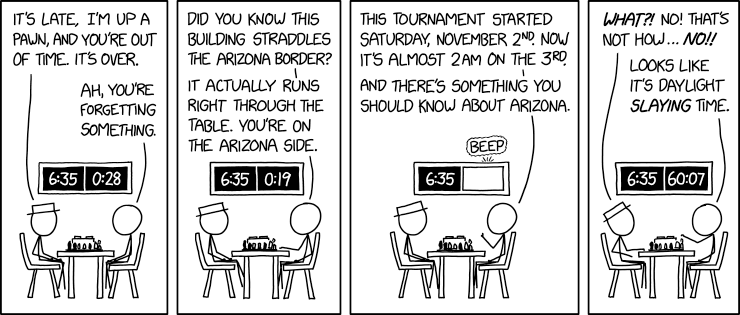I think I know the answer to this, but I can't prove it. Hence the question.
I present to you, XKCD 3014: 'Arizona Chess'
Assuming a match starts with significantly more than an hour per player, do Chess federations (such as but not exclusively FIDE) take time zones into account? The example in the image is about the timezone passing straight through the board effectively giving one of the players an extra hour, but perhaps a more likely scenario would be when players are playing online (or otherwise remotely) and are definitively not in the same timezone.
Is any of the time zones leading? Does the game exist purely in relative time ignoring time zones? This must have come up sometime.

